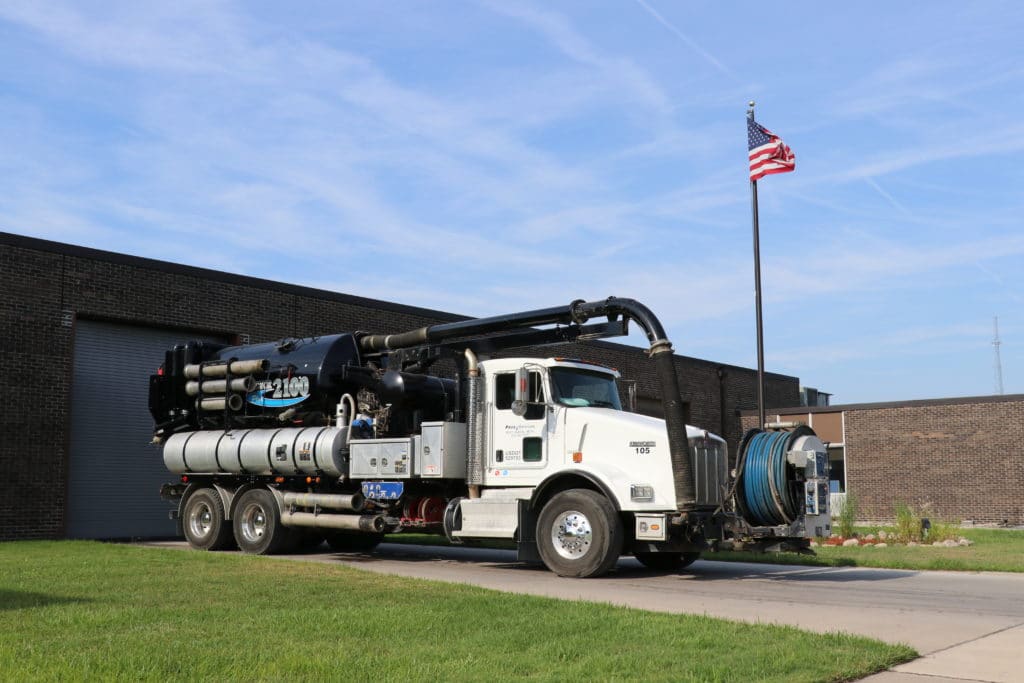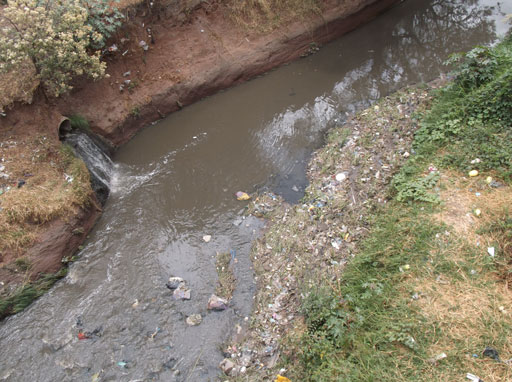Understanding the Comprehensive Refine of Liquid Garbage Disposal: Best Practices and Environmental Influence Considerations
The management of liquid garbage disposal is a complex issue that requires an extensive understanding of various finest practices and their associated ecological impacts. From the sorts of fluid waste created to the techniques utilized for collection, therapy, and final disposal, each step plays a vital role in safeguarding ecosystems and public health. As governing requirements advance and technology breakthroughs, the conversation around these processes comes to be progressively essential. What implications do these modifications hold for future sustainability initiatives, and just how can stakeholders guarantee that they are appropriately dealt with?
Sorts Of Liquid Waste
Recognizing the various sorts of liquid waste is important for effective administration and disposal methods. Liquid waste can be generally categorized into several types, each calling for one-of-a-kind handling and therapy approaches.
Industrial liquid waste commonly contains harmful products, consisting of heavy steels, solvents, and chemicals, created during making processes. These wastes demand strict regulatory compliance to shield human health and the setting. Domestic fluid waste mostly refers to wastewater generated from families, consisting of sewage and greywater, which, although less harmful, can still present significant risks if poorly taken care of.
Agricultural fluid waste, including drainage from ranches, commonly has fertilizers and chemicals that can bring about ecological destruction otherwise dealt with properly. Clinical liquid waste, produced from health care facilities, includes infected liquids such as bodily liquids and chemicals, needing specialized disposal methods to avoid infection and ecological contamination.
Finally, oil and oil waste, typically generated by restaurants and auto markets, can cause extreme blockages in drain systems otherwise managed effectively. Comprehending these classifications facilitates targeted methods for treatment, conformity with guidelines, and effective disposal techniques, inevitably promoting ecological sustainability and public health security.

Collection Techniques
Reliable collection approaches are vital for the appropriate monitoring of fluid waste, making certain that it is collected securely and successfully prior to treatment or disposal. Numerous strategies are used relying on the kind of liquid waste generated, the volume, and the details features of the waste.
One usual approach is the usage of devoted collection tanks or sumps, which are designed to capture fluid waste at the source. These systems often include pumps that promote the transfer of waste to larger storage space containers or therapy centers. Additionally, mobile collection devices furnished with vacuum technology are used in situations where waste is produced intermittently or in hard-to-reach locations.
For industrial settings, closed-loop systems can efficiently minimize spills and leakages, permitting for the recuperation and reuse of liquid waste. It is additionally important to educate personnel on correct collection procedures to reduce dangers related to harmful substances.
In addition, executing regular upkeep schedules for collection devices makes certain ideal performance and security. The assimilation of advanced surveillance systems can enhance collection effectiveness by supplying real-time information on waste degrees and potential hazards. Generally, effective collection approaches are foundational to lasting liquid waste administration techniques.
Therapy Procedures
Therapy procedures play an essential function in the monitoring of liquid waste, transforming potentially hazardous products right into multiple-use sources or secure effluents - liquid waste disposal. These processes can be extensively classified right into physical, chemical, and organic methods, each tailored to address particular contaminants present in the waste stream
Physical treatment methods, such as sedimentation and purification, work by removing put on hold solids and particle issue. These techniques are commonly the very first step in the treatment chain, efficiently reducing the lots on succeeding processes. Chemical treatments include using reagents to counteract damaging materials, speed up heavy steels, or oxidize natural contaminants, thus enhancing the security of the effluent.
Biological treatment processes, consisting of activated sludge systems and anaerobic digestion, take advantage of the natural capabilities of bacteria to degrade natural matter. These techniques are specifically reliable for wastewater including eco-friendly pollutants. Advanced treatment technologies, such as membrane filtering and progressed oxidation procedures, are significantly used to achieve higher degrees of purification.
Incorporating a combination of these treatment methods not just makes certain conformity with regulatory criteria but likewise promotes environmental sustainability by recuperating beneficial sources from fluid waste.
Disposal Options
Just how can organizations guarantee the liable and safe disposal of fluid waste? Reliable disposal alternatives are crucial for securing public health and wellness and the atmosphere. The main methods include land disposal, treatment, and incineration adhered to by discharge right into municipal wastewater systems.
Land disposal involves find this the mindful control of liquid waste in designated landfills, ensuring that it does not seep right into surrounding dirt or water. Incineration, on the other hand, topics fluid waste to heats, transforming it into ash and gases, which call for proper filtration to decrease discharges. This method is suitable for contaminateds materials that can not be dealt with through typical ways.
In cases where fluid waste can be treated, companies might choose chemical or organic treatment processes to counteract damaging components prior to discharging the dealt with effluent into municipal systems. This path commonly aligns with governing requirements, guaranteeing that the effluent meets safety requirements.
Ultimately, companies need to perform thorough analyses of each disposal choice to identify its practicality, thinking about variables such as waste structure, regulative conformity, and potential dangers to wellness and the environment. By choosing proper disposal approaches, organizations can add to a liable waste monitoring strategy.
Environmental Effect
The environmental influence of liquid waste disposal is a vital consideration for basics companies seeking to reduce their ecological footprint. In addition, the discharge of without treatment or improperly treated waste into surface area waters can result in eutrophication, leading to oxygen depletion and the succeeding death of fish and other microorganisms.

To reduce these effects, companies should embrace ideal techniques such as executing strenuous waste therapy procedures, advertising recycling and reuse, and sticking to regulatory standards. By taking a positive method to liquid waste administration, entities can significantly decrease their environmental impact while supporting sustainable development objectives. Inevitably, an extensive understanding of the discover this info here environmental impacts connected with liquid waste disposal is necessary for educated decision-making and accountable stewardship of natural deposits.
Final Thought
Efficient administration of liquid waste is essential for guarding ecological stability and public health and wellness. By embracing finest methods in disposal, treatment, and collection, along with adherence to regulative criteria, the capacity for hazardous contamination of communities can be considerably lowered. Continual innovations in innovation and processes add to lasting waste administration initiatives. Ultimately, an extensive understanding of liquid garbage disposal not only mitigates environmental effects but additionally fosters a dedication to accountable source administration and ecological stewardship.
The monitoring of liquid waste disposal is a diverse concern that needs a comprehensive understanding of different ideal techniques and their associated environmental influences. From the kinds of liquid waste produced to the approaches employed for collection, treatment, and final disposal, each action plays a vital function in guarding ecological communities and public health and wellness.The ecological influence of fluid waste disposal is a critical consideration for companies looking for to decrease their eco-friendly impact. Ultimately, an extensive understanding of the environmental effects connected with fluid waste disposal is crucial for informed decision-making and responsible stewardship of all-natural resources.
Ultimately, a comprehensive understanding of liquid waste disposal not just reduces environmental impacts but additionally cultivates a dedication to liable source monitoring and ecological stewardship.
Comments on “Trusted Liquid Waste Disposal Melbourne: Safe and Effective Providers”